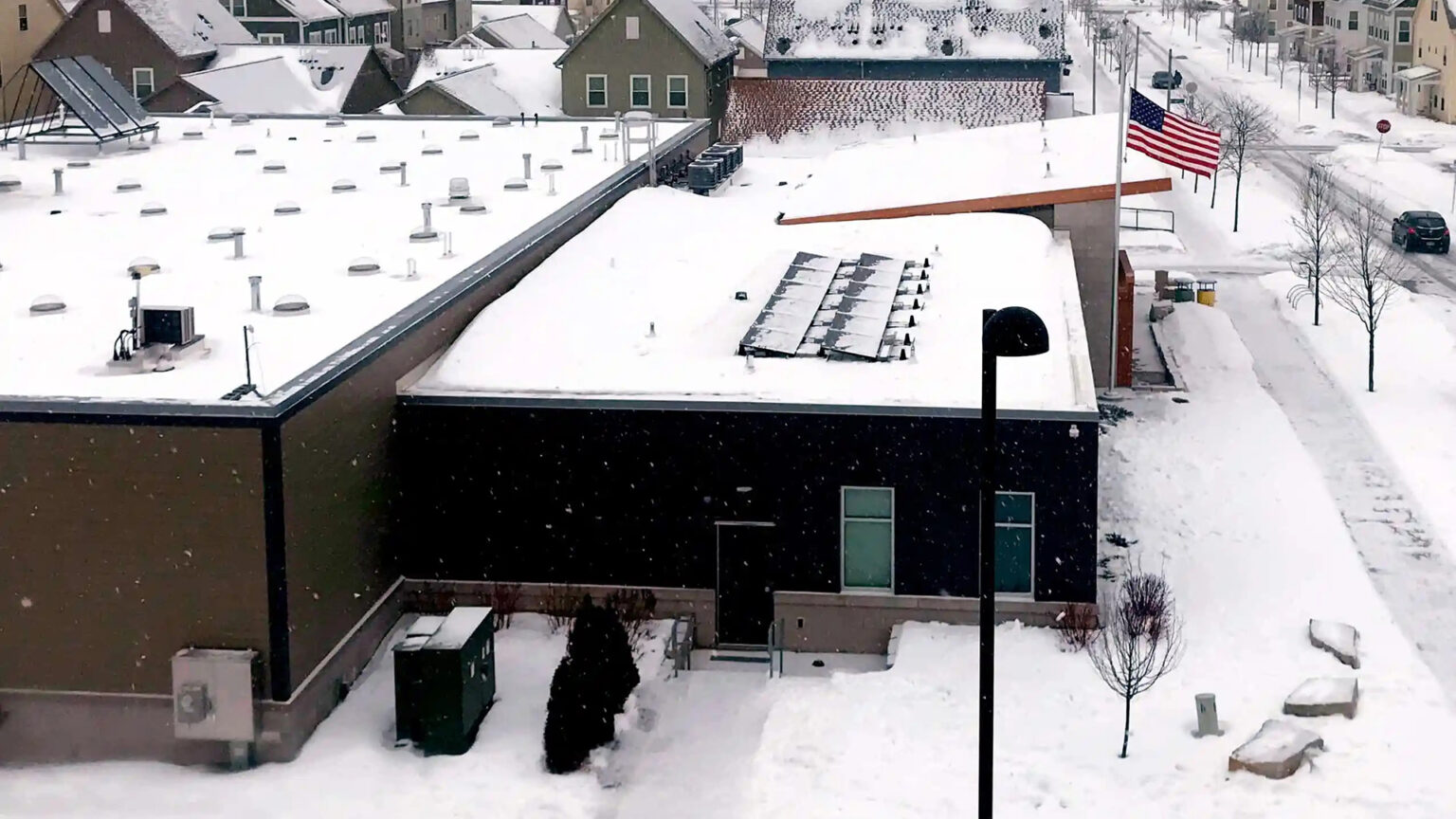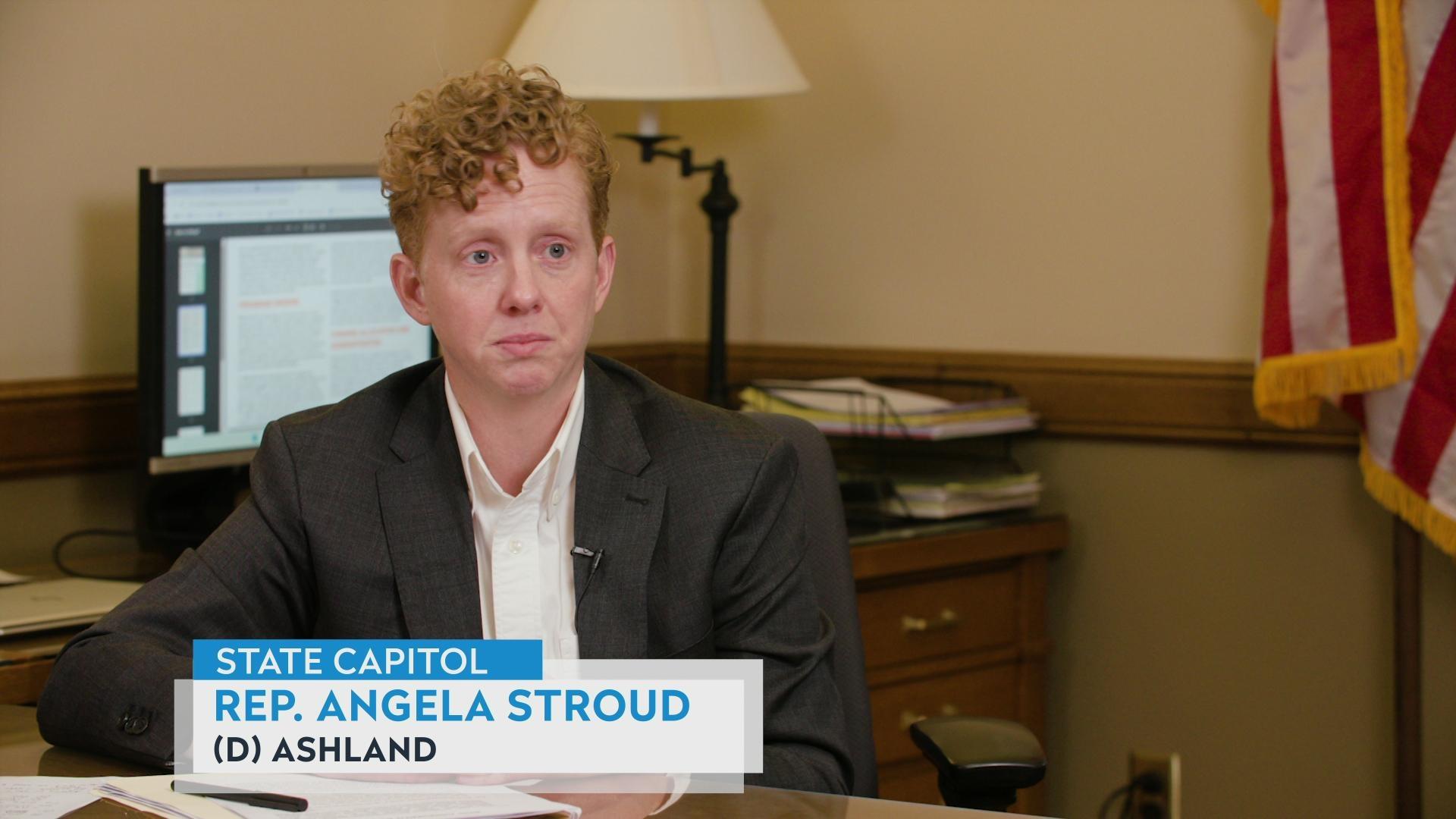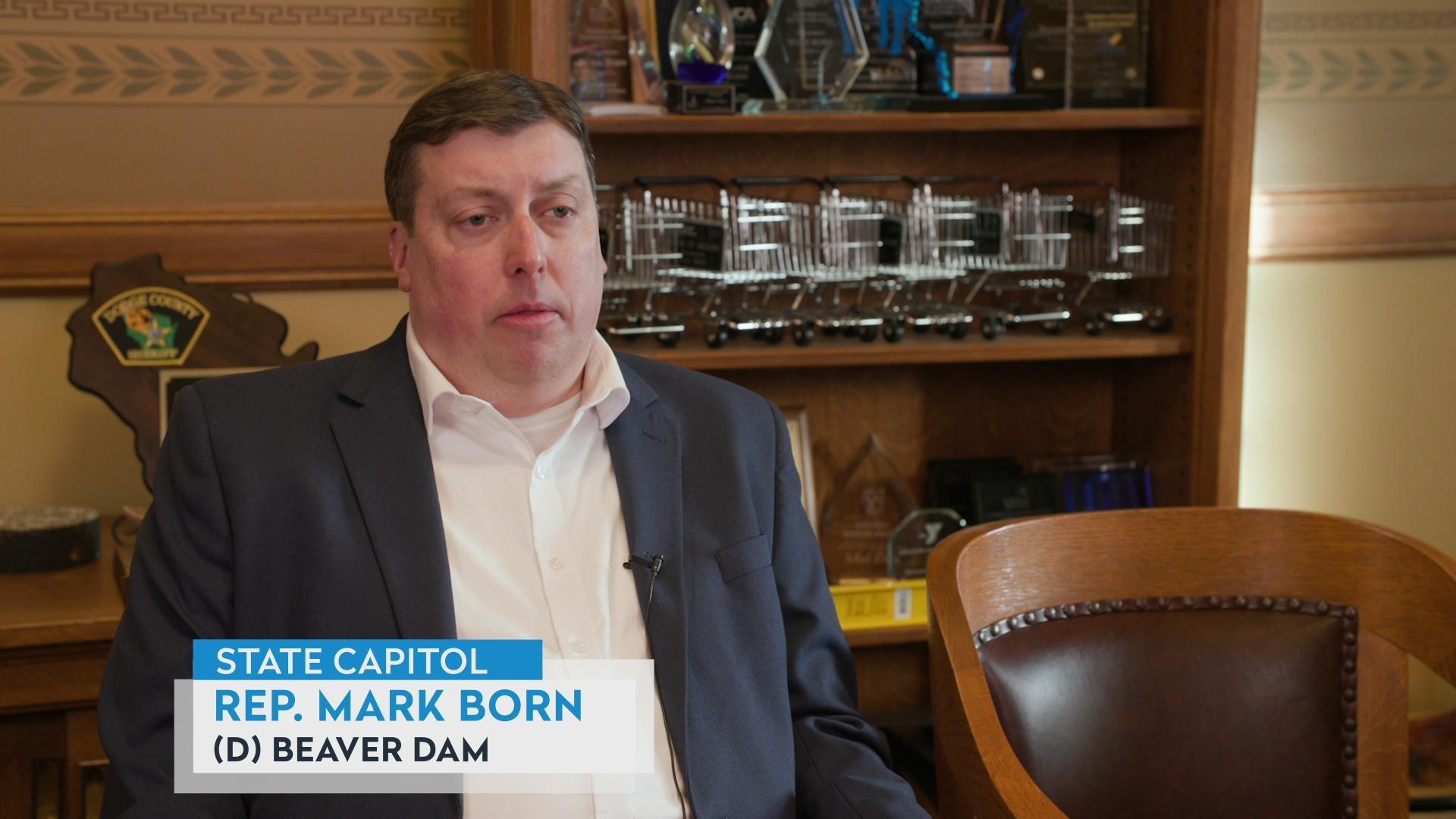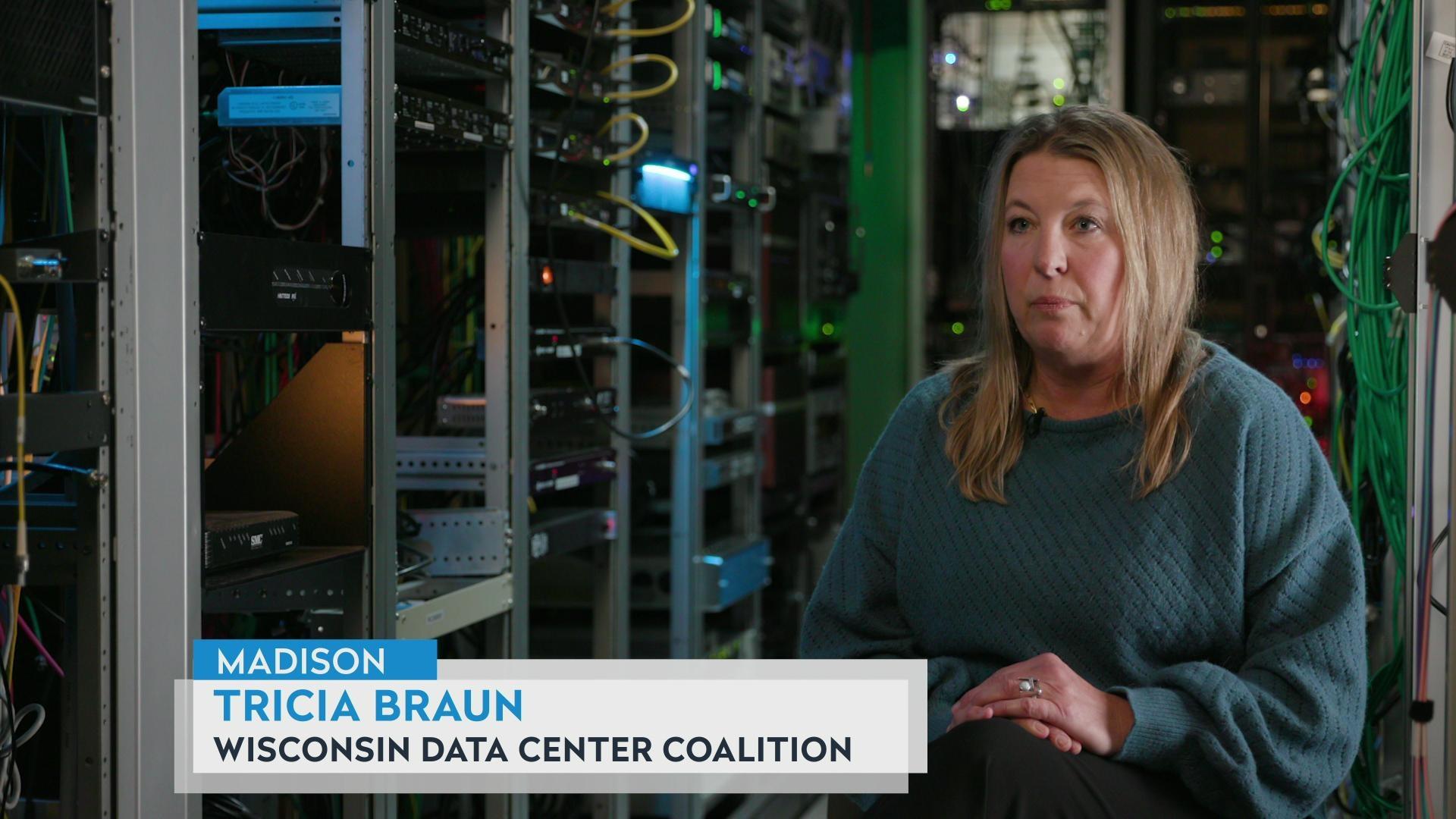Federal climate law changes the stakes in Wisconsin third-party solar fight
The Inflation Reduction Act opens up new opportunities for nonprofits to take advantage of tax credits, but Wisconsin regulators are still vague on what types of projects will be allowed.
Wisconsin Watch
January 9, 2023

Solar panels were installed on the rooftop of the Westlawn Gardens Management and Maintenance Facility building in Milwaukee. Westlawn Gardens is public housing community on the city's northwest side. (Credit: Courtesy of Glen Radford / Housing Authority of the City of Milwaukee)

Wisconsin solar advocates and developers say clarifying the legality of third-party-owned solar in the state is even more crucial now since the federal Inflation Reduction Act allowed solar tax credits to be paid directly to nonprofit organizations and government entities.
This change removes the necessity of third-party ownership for such entities to benefit from crucial tax credits, but it opens up a whole new opportunity for nonprofit organizations to develop third-party-owned solar for customers or community groups that can’t afford the upfront capital themselves.
That’s what the Midwest Renewable Energy Association, or MREA, is hoping to do, but it is being stymied by the Public Service Commission’s failure to rule on a petition the organization filed in May 2022 asking the commission to interpret state law regarding third-party-owned solar.
In December, the commission ruled in favor of a third-party-owned project proposed by one Wisconsin family, represented by the group Vote Solar. But solar developers and advocates note that most customers seeking such arrangements don’t have the resources to individually go through a petition process with the commission.
MREA Executive Director Nick Hylla said the ruling is a positive move, but unless there is a favorable decision on MREA’s petition, he fears the Vote Solar decision could signify that the commission intends to consider projects on a case-by-case basis, rather than affirming that third-party ownership is legal under Wisconsin law.
Utilities have argued that third-party ownership violates their right to be the sole electricity provider in their service territory, protected from competition. In their brief in the MREA case, the Wisconsin Utilities Association argued: “MREA urges the Commission to accomplish indirectly what it cannot do directly, proposing a creative interpretation of the Public Utility Law that would endorse the very thing Wisconsin rejected in 1907: the provision of electric service to any number of customers of any type or size via individual generating systems under individual contracts.”
MREA’s petition contends that under certain circumstances, a third-party-owned project should be considered legal and safe from costly delays caused by utility legal challenges or refusals to interconnect solar. Namely, the solar installation is purely behind the meter and providing electricity only to that customer, or sending it back to the grid under a net-metering arrangement with the local utility.
“What would be the point of having the commission approve every single project?” Hylla asked. “That doesn’t make a functioning market. We’re happy about the Vote Solar ruling, the commission signaled they think the characteristics that make up this project don’t (define the solar owner as a public utility.) But I don’t see how the commission can … also interpret the law to say that doesn’t apply to other projects that have similar facts.”
The Wisconsin Utilities Association sees it differently, as outlined in their brief: “MREA’s petition puts the question to the Commission in the starkest possible terms: should anyone meeting MREA’s eleven-point description be free to sell power to utility customers with zero regulatory oversight?”
The commission still needs to draft the official order enshrining its decision in the Vote Solar case, and Wisconsin Public Service — the utility serving the Stevens Point area where the family lives — could ask for a rehearing or file a lawsuit.
“We’re eager to see what comes out in the written order — if there’s any additional color that might help us understand how this might apply more broadly,” said Will Kenworthy, Vote Solar’s Midwest regulatory director. “But we were really pleased with the two most important findings: In the seven specific circumstances that we laid out, (developer) Northwind does not constitute a utility and the customers seeking to install the system are not the ‘public’ in the definition of state statute.”
Expanding potential
RENEW Wisconsin policy director Michael Vickerman sees the Vote Solar ruling as conducive to third-party-owned solar, but said without further clarity it will be difficult to predict how utilities will respond to interconnection applications.
“I would feel comfortable about venturing into the third-party financing arena, specifically to serve targeted customer groups like nonprofits and income-challenged residents, sticking to the route mapped out in the Vote Solar petition,” he said. “I would not entertain any deviations from that approach, however.”
MREA notes in its petition that it wants to develop third-party-financed solar installations that it would own, and some of its members would also like to do so. The petition originated when MREA got a donation that would allow it to develop and own a solar installation to be used for solar workforce training, and it wanted another entity to be able to benefit from the energy supplied. Since the Inflation Reduction Act means tax credits can be paid directly to nonprofits that own solar, he thinks nonprofits could take on a whole new role in helping to make solar accessible to lower-income customers — and receiving charitable donations for that purpose.
“It’s really exciting to think about what project finance looks like after the passage of the IRA and what role does a charitable organization play,” Hylla said.
MREA’s petition drew numerous letters of support from solar developers, clean energy groups and the Milwaukee sewerage district. The group Wisconsin EcoLatinos noted in their comment: “We are concerned that minorities, lower-income, and middle-income communities won’t be able to access clean energy because of the high upfront cost of installing solar panels in their homes. This barrier could be eliminated by allowing third-party financing to increase access to residential customers that can’t afford an upfront investment to install solar panels on their property.”
MREA’s petition notes that third-party arrangements generally are focused on solar but increasingly “include additional equipment, such as battery storage and load controllers. As technology and business models continue to develop, it is likely that future third-party financed (resources) will also include smart thermostats, smart appliances, and electric vehicle charging equipment.”
Hylla said utility programs making smart technology available to customers, including lower-income customers, have often not been successful, and outside of legislative mandates utilities have little incentive to deploy such programs since they reduce demand for utility-provided electricity. Third-party ownership could play a meaningful role in deploying technology that reduces overall demand and reduces costs for consumers across the board, Hylla said.
MREA cites an Iowa Supreme Court ruling that affirmed the legality of third-party solar. “As the Iowa Supreme Court correctly put it: third-party financing of solar for individuals is an alternative to monopoly utility power and ‘should not draw an entity into the fly trap of public regulation,'” MREA’s petition said.
Advocates have noted that after the Iowa ruling, such arrangements have blossomed and there’s been little negative impact or feedback from utilities.
Other questions
In a brief filed as part of the MREA proceedings, municipal electric utilities said the matter should be left to the legislature, not the commission. Advocates of third-party solar have also sought action from the legislature, but have been frustrated that both state legislators and courts have failed to take up the issue. A bill introduced by Republican legislators who support third-party ownership has failed to advance.
MREA originally filed a lawsuit in state court regarding third-party solar, arguing that this was the correct venue since they are not a public utility and hence not subject to commission regulation. But the lawsuit was dismissed, with the court saying the commission should decide the issue. Hylla said the commission’s Vote Solar decision provides grounds for an appeal in the courts, since the commission itself decided that the third-party owner would not be functioning as a public utility subject to its regulation.
Hylla noted that other reasons utilities have said they oppose third-party ownership — like “cost-shifting” to customers without solar and the potential for customers to be harmed — are not related to the question of whether third-party ownership is legal. MREA’s proposal includes a provision that third-party-owned projects must have a clear contract outlining cost, location, size, financing, insurance and other attributes, to protect customers.
He and other advocates hope the commission will decide on MREA’s petition by determining whether the set of facts laid out do indeed mean a third-party ownership situation is legal, regardless of utilities’ concerns over the proliferation of distributed solar that they don’t own.
“This isn’t about (creating) policy — this is about the commission doing its job and interpreting existing state statute,” Hylla said. “We created the commission to regulate monopoly utilities to protect us from their profit interests. We didn’t create the commission to protect monopolies from the consumers.”
This article first appeared on Energy News Network and is republished here under a Creative Commons license. The Energy News Network is a nonprofit news site dedicated to keeping influencers, policymakers and citizens informed of the important changes taking place in the transition to a clean energy system.
![]()
 Passport
Passport











Follow Us